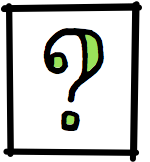 I just tweeted about this, but I like this enough that i want to capture it here. I have finally gotten around to reading the new Over the Edge. It’s not released yet, but I backed the kickstarter, and the pretty-much-final preview version got sent around recently, and I finally sat down to read it. I had not read any of the previews before that for two reasons. First, OtE is an INCREDIBLY important game to me, so I was willing to be patient. Second, I hate reading multiple versions of a game because all the rules stick in my head, and I end up in a muddle when all is done. This is why I don’t read any of the preview editions of even games that I love and am super excited about, like all of the Blades in the Dark family of stuff.
I just tweeted about this, but I like this enough that i want to capture it here. I have finally gotten around to reading the new Over the Edge. It’s not released yet, but I backed the kickstarter, and the pretty-much-final preview version got sent around recently, and I finally sat down to read it. I had not read any of the previews before that for two reasons. First, OtE is an INCREDIBLY important game to me, so I was willing to be patient. Second, I hate reading multiple versions of a game because all the rules stick in my head, and I end up in a muddle when all is done. This is why I don’t read any of the preview editions of even games that I love and am super excited about, like all of the Blades in the Dark family of stuff.
Anyway, there is a specific trick in the new OtE that I love and which I think is wonderfully portable. In the game, every character has a question. Now, to get the question, you pick some descriptor of their nature (Honorable, Honest, Merciless, Cruel and so on) but then append it with a question mark, so the character is “Honorable?” or “Merciless?”.
What this signifies is that this thing is both very true to the character and that it’s mostly true, but there are exceptions (which may or may not be communicated) and those exceptions are damn well going to come up in play.
I love this, for a host of reasons.
Dramatically, it’s just great, because it acknowledges that a lot of these essential ideas are more interesting in their exceptions and contradictions (but only if they still have weight to them). “Honest?” is more interesting than “Honest” or “Dishonest” because it implicitly brings in uncertainty and motivation rather than simply leaving it as essential.
Practically, it also addresses a classic communication problem in RPGs – when a player makes a statement about their character, it is not always obvious whether they’re establishing a baseline (and want it to be taken for granted) or if it’s a flag on something that they want to be pushed and tested.
For an easy illustration of this, let’s use a paladin. They’re good for this.
If my paladin is “Faithful” then his faith is a constant. If he is presented with temptations, he will reject them. If challenged, he will be resolute.
If my paladin is “Faithful?” then all of the above is true most of the time, but the outcome is less certain. When my faith is tested, there is a chance it will falter, and that’s something I want to play.
Sidebar: bear in mind that these can both be awesome characters. There’s a storytelling assumption that the latter is somehow better because it’s narratively more interesting, but that is looking at these elements in a vacuum. It’s good to have a mix of essentials and questions to make for a robust character.
Now, if you’ve read that far, it’s pretty obvious that this is an idea that’s easy to port to almost any other game. It needs not mechanics – it’s just a communication and description element, so it can really be applied to any game. But when the game has a space for such things, it’s all the easier to hook in.
The most obvious applicability is, of course, to aspects in Fate and related games. No new mechanics are required, but the simple act of turning an aspect into a question gives all the benefits we’ve been talking about and provides much greater clarity around expectations for compels and invocations. If I, as a GM, see a question mark at the end of an aspect, I take that as a clear indicator that you – as a player – want me to offer lots of possible compels there. And, implicitly, it also tells me to maybe not lean so hard on the ones that you don’t have a question mark next to.
Sidebar: In fact, I might even supplement this approach with exclamation points, to represent “implied comma, dammit” to the end of an aspect to make it CRYSTAL CLEAR that I take this as a bedrock assumption and am not interested in playing against it. This doesn’t mean no compels, but it does suggest the type of compels that the “Honorable!” Paladin is looking for are different than the type of compels the “Honorable?” Paladin wants.
So, as I said, I love this. I 100% intend to use this in my next Fate game, and encourage it in other games I run and play. There’s pretty much no downside to it, and if it sounds cool to you, definitely consider taking it for a spin.